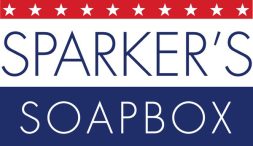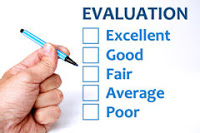At Tuesday’s School Board meeting, the Board’s annual self-evaluation and evaluation of the Superintendent will be presented and discussed.
I’m not surprised that the Board’s self-evaluation took a terrible turn this year, reflecting senior Board members’ frustrations with the behavior of the two new Board members both at and outside of Board meetings, and new Board members’ frustrations with their new peers.
Unexpectedly, however, the Board’s evaluation of the Superintendent showed significant improvement over last year’s. This was the case even though when there was lack of unanimity, the new Board members’ ratings were always the lowest.
In this post, I’ll share how the evaluation process works, with links to relevant materials so you can dig into them yourself. I’ll also share my observations of both evaluations and my concerns about their implications. As always, I urge you to let our elected Board members hear from you on these matters, either by email or in person, before they vote on the evaluations at Tuesday’s meeting.
The Board’s Self-Evaluation
The Board has been using the same evaluation instrument for the past six years. Areas covered include Board/Superintendent relationship, governance, policy-making, Board members’ conduct during and after Board meetings, and community/stakeholder relationship. Each Board member is asked to rate the Board on 34 indicators using a five-point scale (Strongly Agree, Agree, Neutral, Disagree and Strongly Disagree).
For the 2014–15 year, all 34 indicators moved in a negative direction compared to the prior year, meaning the Board views itself as less effective this year than last on every metric. Even more telling, all five board members rated the Board’s performance favorably in just four of the 34 indicators. It rated its performance unfavorably in 30 of the 34 indicators.
The worst ratings numerically were on these indicators:
#7 – The School Board and the Superintendent work together to create a climate of good faith and goodwill through team work and clear communication.
Mrs. Curatolo commented that “While the special meeting helped move us in this direction, we [are far] from a highly functioning board. Political agendas, lack of trust, and clearly pushing agendas which are not in the best interest of all students block us from high-level functioning….”
#11 – The School Board plans and conducts meetings in a businesslike manner, following accepted parliamentary procedures.
Mr. Terry commented, that “You never know what direction the meeting will take. We can take hours discussing procedural issues that had already been decided at a previous meeting. Example, when the public can speak.”
#14 – The School Board and the Superintendent work well together in a spirit of mutual trust and confidence.
Mr. Terry commented that “The lack of trust by a few Board members in the Superintendent and the rest of the Board is a problem. This causes a large amount of extra work for the Superintendent and her staff.”
And by far the worst rating (2.0 Disagree):
#17 – “Once a decision is made, all School Board members work together to support and implement the decision.”
Mr. Terry commented that while the District has no opt out of testing policy, “one Board member informed people how to opt out of testing.”
This is a TERRIBLE result. And the last year’s self-evaluation wasn’t much better. Comparing the 2013–14 to the 2012–13 indicators, only three of the 34 indicators moved in a positive direction, 17 were unchanged and 14 got worse.
Our school district nearly lost its accreditation in 2007 due to Board behavior and how it operated as a governing board. According to the Greater Naples Chamber of Commerce at the time, in an article titled “School Accreditation: What It Means for Collier County“:
To be blunt, graduation from a school system that loses accreditation means the students’ high school diplomas are – in a word – worthless. And if those kinds of penalties aren’t enough, history has shown an entire community can be thrown into chaos by the loss of its schools’ accreditation. Students jam adjoining counties’ schools, entire families relocate to other parts of the country, property values plummet, federal and state financial support dries up.”
The accreditation team at the time recommended that the District do a self-evaluation of its performance as a governing body, develop an in-house effectiveness training program with the specific objective of improving its ability to work as a governing body, and complete a comprehensive external review of its policies. It did so, and worked very hard over the next two years to get the “warned” status cleared.
And now look where we are.
Elections have consequences – even ones with very low voter turnout. We community members should be very concerned, both about the dysfunction reflected by this year’s evaluation, and by the negative trend.
We need to let those whose behavior we aren’t happy with know that we expect better.
The Superintendent’s Evaluation
The Superintendent’s employment contract requires an annual evaluation based on goals agreed upon by the Board and Superintendent at the beginning of each school year.
The Superintendent’s evaluation is in two parts:
- performance objectives tied to the annually-adopted District Strategic Plan, and
- professional standards aligned to the 2009 Connect Now Community Statement of common aspirations for students and our community.
Each of the Superintendent’s performance objectives and professional standards is rated by each Board member on a four-point scale. The ratings of the five Board members are averaged, and then the combined rating on each part is weighted 50% so that the Superintendent’s overall rating is the average of the ratings of the two parts. An overall rating of 2.4 or above is Satisfactory; 2.3 or below is Unsatisfactory.
For the 2014–15 year, the Superintendent’s rating is 3.69, a significant improvement over the 2013–14 year of 3.24, which had been adversely affected by the ratings of former Board member Pat Carroll. For the 2012–13 year, the Superintendent’s rating was 3.78.
In the current year evaluation, all five Board members said the Superintendent completely met 31 of her 38 performance objectives, and completely or mostly met four. Two were linked to statewide tests for which results were not available.
Ratings on the 20 professional standards were more disparate, with the new Board members responsible for all the “needs improvement” and “not acceptable ratings.” Specifically, on “Demonstrates tact and diplomacy in working with individuals and groups,” and “Responds appropriately when faced with unforeseen events,” Lichter’s rating was the lowest possible: “not acceptable.” On the latter, Donalds’ rating was “needs improvement,” though Donalds agreed with the other three Board members in giving an excellent rating to “Demonstrates tact and diplomacy.”
It is the Board’s responsibility to set measurable performance objectives for the Superintendent, and I’m pleased with the near-unanimity of the Board’s ratings on these measures.
However I’m concerned about the divergent ratings on the professional standards metrics, and disappointed that specific examples of those situations where Ms. Lichter and Ms. Donalds said the Superintendent’s performance “needs improvement” or is “not acceptable” were not provided with the evaluation posted online. Hopefully they were provided to the Superintendent in writing.
Tuesday’s Board Meeting
The business portion of the Board meeting begins at 5:30 pm this Tuesday, June 9. View the agenda here.
There are three opportunities for public comments, all at the beginning of the meeting before staff presentations or Board discussions:
- To address any item on the Consent Agenda (Agenda Items 7 – 84);
- To address anything not of the agenda, under General Public Comments (Agenda Item 86); and
- To address a specific agenda item, e.g. Board Self-Evaluation (Item 91) or Superintendent Evaluation (Item 92)
If you wish to speak, you must register before the meeting begins, indicating which agenda item you wish to address or if you have a general comment. You may do so online five hours before each meeting, or in person at the meeting.
If you are unable to attend the meeting but want to give comments to the Board and/or Superintendent, you can email them:
Kathleen Curatolo – curatoka@collierschools.com
Erika Donaolds – donale@collierschools.com
Kelly Lichter – lichteke@collierschools.com
Julie Sprague – spraguju@collierschools.com
Roy Terry – terryro@collierschools.com
Superintendent Kamela Patton – Patton@collierschools.com
Please share this post with your friends. You and they can subscribe to Sparker’s Soapbox by email at www.sparkers-soapbox.blogspot.com, “like” me on Facebook at www.facebook.com/sparkers.soapbox or follow me on Twitter @SparkersSoapbox.

